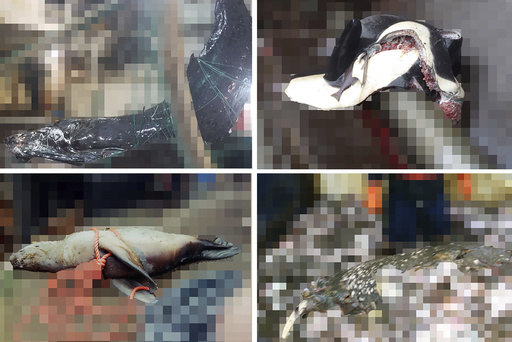
MIAMI — On Thursday, activists took legal action against the federal government, demanding the release of images depicting deceased orca whales, sea lions, and other marine mammals that have become entangled in the nets of commercial fishing vessels along the U.S. West Coast.
This lawsuit arises from frustrations voiced by Oceana, a conservation organization based in Washington, D.C., after the U.S. National Oceanic and Atmospheric Administration (NOAA) neglected to respond to several Freedom of Information Act requests. Oceana initiated these requests to shed light on the detrimental effects trawl fishing has on marine life in waters managed by federal regulations.
Tara Brock, the Pacific legal director for Oceana, emphasized the importance of transparency, stating, “People have the right to know how commercial fisheries impact marine wildlife.” The legal actions were brought forth in federal courts located in Alaska and California by legal representatives from Earthjustice, a nonprofit law organization based in San Francisco.
Central to this legal battle is NOAA’s conflicting responsibility: promoting fishing at sustainable levels while simultaneously enforcing regulations that protect marine mammals. Oceana has been advocating for stricter regulations concerning trawl fishing, which is viewed as one of the least sustainable fishing practices. This method involves large vessels dragging massive nets near or along the ocean floor, inadvertently capturing significant amounts of non-target species, known as bycatch.
The lawsuit highlights alarming levels of animal entanglements in U.S. waters, citing that, during a single four-month period last year, 10 orca whales became entangled in the Bering Sea off Alaska, according to NOAA’s own data. Tragically, only one of these whales survived.
Beginning in 2021, Oceana has submitted requests for public records to obtain photographs and videos of the deaths documented by observers funded by taxpayers, who monitor compliance with federal conservation laws on fishing vessels. NOAA has consistently denied full access to records of marine mammal bycatch from California’s halibut fishery, whereas in Alaska, although a few clear images were released, many others were heavily obscured or pixelated, making identification of the animals impossible.
A representative from NOAA indicated that the agency is unable to comment on ongoing litigation. However, the lawsuit claims that NOAA informed Oceana that releasing unredacted images would contravene certain provisions of the Magnuson-Stevens Act. This act governs fisheries and obligates the agency to keep the identities of specific vessels and businesses confidential.
In its legal argument, Oceana contends that the Magnuson-Stevens Act is predicated on the idea that the public must have a significant role in fisheries management and asserts that NOAA’s refusal to honor its request for records unlawfully hinders necessary oversight of commercial fishing practices.
